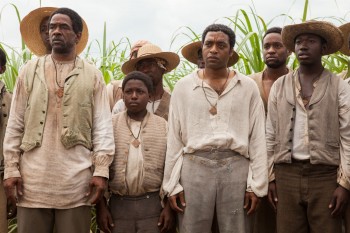November 19, 2013, was the 150th anniversary of President Abraham Lincoln’s Gettysburg Address. That date was celebrated across the nation as an interesting piece of trivia, but it is critical to understand that the Address and the liberties won in the Civil War are only 150 years old.
To put that span of time into perspective, railroads are older than the Thirteenth Amendment’s guarantees of freedom, and the last child of a slave only died in 2011. American slavery is, unfortunately, a piece of our very recent history. The film 12 Years a Slave, nominated for the Academy Award for Best Picture, skillfully displays the horror of a world that was transformed by the events of the 1860s.
Lincoln’s address at Gettysburg was a defining moment in the American story that is difficult to truly comprehend without context. When the war broke out, North and South believed themselves divided over a simple political dispute: who was sovereign under the U.S. Constitution, the states or the federal government? There was a certain inauthenticity in this understanding, as the South was only fighting for states’ rights to protect their “peculiar institution,” also known as human slavery.
It was not until Lincoln gave his address at Gettysburg that both sides, especially the North, acknowledged the war was not simply a political dispute, but a moral one. To the president, this was a war about ending a great evil. While history has immortalized his words, many at the time questioned the president’s actions. Some, indeed, were wondering what took him so long.
The slavery question had been creating more and more heated disputes among the American people in the decades since the ratification of the Constitution. Many in the North saw the war from the beginning as a crusade against the great slave power. Some came from the Quaker traditions of Pennsylvania, which had filed the first anti-slavery petition to the U.S. Congress in its very first session. Many, however, were recent converts.
The printing of two seminal works of literature in the 1850s sparked a rise in abolitionist sentiment. The more commonly known work is Harriet Beecher Stowe’s Uncle Tom’s Cabin, but the other work, seemingly forgotten by history, was Solomon Northup’s Twelve Years a Slave.
Twelve Years tells the story of Northup, a free-born African-American from New York who was tricked into a trip to Washington, D.C., where he was drugged and kidnapped. After 160 years of relative obscurity, Solomon’s tale has made it to the big screen, and in a big way.
Chiwetel Ejiofor, a British actor, takes us through the difficult journey from free man with a wonderful family to human livestock, letting the true tragedy of his life sink in deeply with each scene. Solomon is given the slave name “Platt” and is sold to Ford, played by the always fantastic Benedict Cumberbatch.
Cumberbatch plays a straightforward yet challenging character. A product of his time, Ford is a slave owner, but not necessarily a tyrant. Ford finds himself impressed by Solomon and often treats him like a friend, while still keeping the line between master and slave clear. It becomes difficult at times to tell if Cumberbatch’s character is truly a good man or is simply manipulating his slaves to get the best work out of them.
After a dispute, Solomon is sold to a notorious slave-breaker by the name of Epps, played by Michael Fassbender. Those familiar with Fassbender’s work probably know what to expect. His portrayal of Magneto in X-Men: First Class allowed for a lot of moral ambiguity in his actions, but Epps is no such complex character. I believe some men are simply evil, and Fassbender convinces the viewer Epps is nothing short of a monster.
This section of the movie is the toughest to watch, and it certainly lives up to the brutal reputation of slavery in the American South. You may find yourself hoping for the movie to end so you can move on to think happier thoughts, but I believe these scenes are what elevate the movie beyond entertainment or even art; sitting through these uncomfortable scenes will strengthen the character of any viewer.
Steve McQueen’s adaptation of Twelve Years a Slave is a difficult work of modern cinema that displays in stark and real terms the tragedy of chattel slavery. It reminds us that seven score and 10 years later, we still owe a debt to our shackled ancestors, whether we descend from slaves or not. These men and women were viewed as subhuman even as they toiled to build the country of freedom we enjoy today. We owe it to the human beings who worked by the force of the whip: to remember their tragedies and to tell their stories.
McQueen (the director, not the late “King of Cool”) proves himself unafraid to turn a mirror on the United States and remind us all why the dead at Gettysburg did not die in vain. His deft work emphasizes to us that the Gettysburg Address and the Emancipation Proclamation are not simply words on a paper to memorize for a school assignment. They are philosophical tracts that changed the history of America and the world.
The Gettysburg Address changed the reasons for fighting the Civil War. Instead of dying for ideological differences about nationalism and states’ rights, the thousands of men who gave their lives at Gettysburg died for a greater ideal. Those brave soldiers sacrificed themselves so that America could have a new birth of freedom — so that millions of men and women still unborn could live free.
Lincoln believed the American people would not long remember what he said in Gettysburg. But true art — art with a purpose — always survives the centuries. We may not be watching McQueen’s masterpiece in 150 years, but the work done by Ejiofor, Fassbender, and Cumberbatch will keep the story of Solomon Northup alive in the American conscience for at least another generation.
